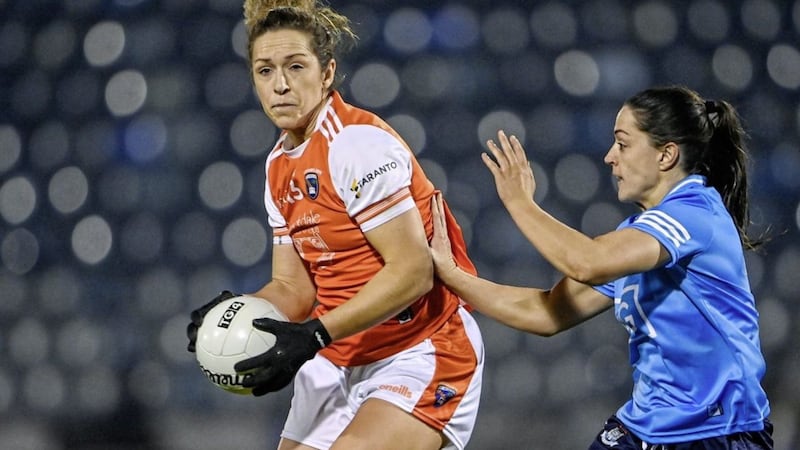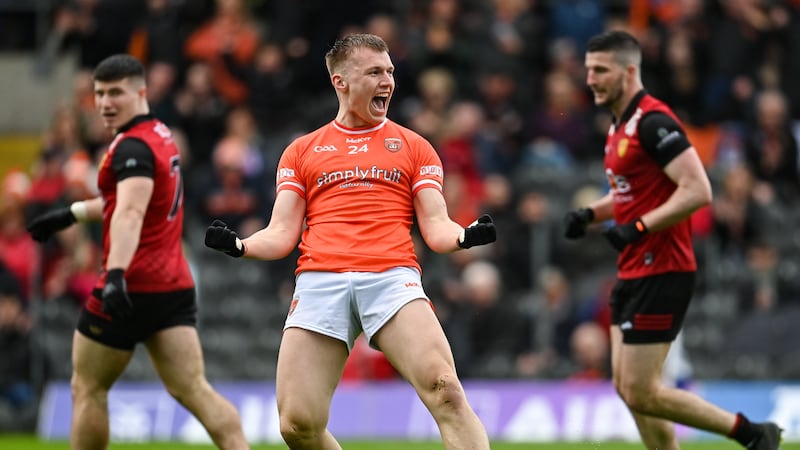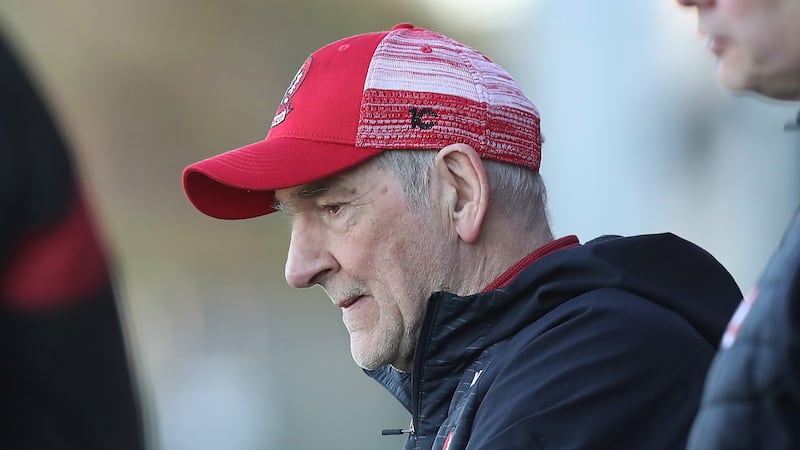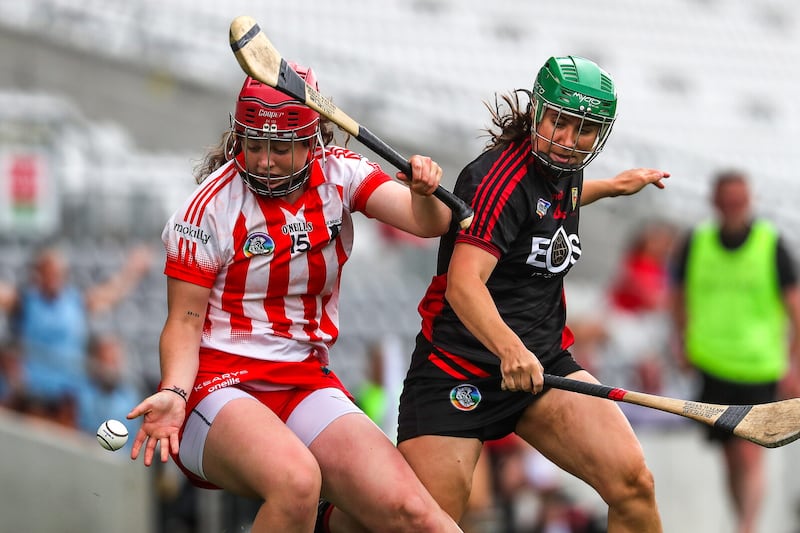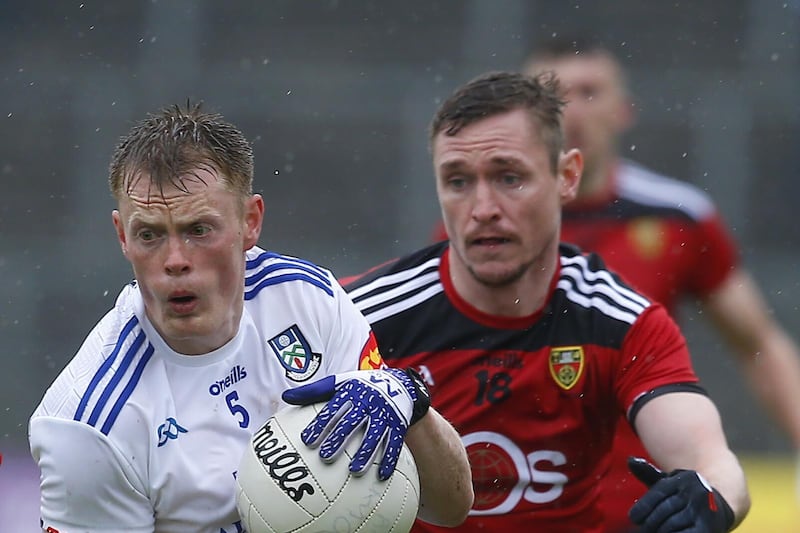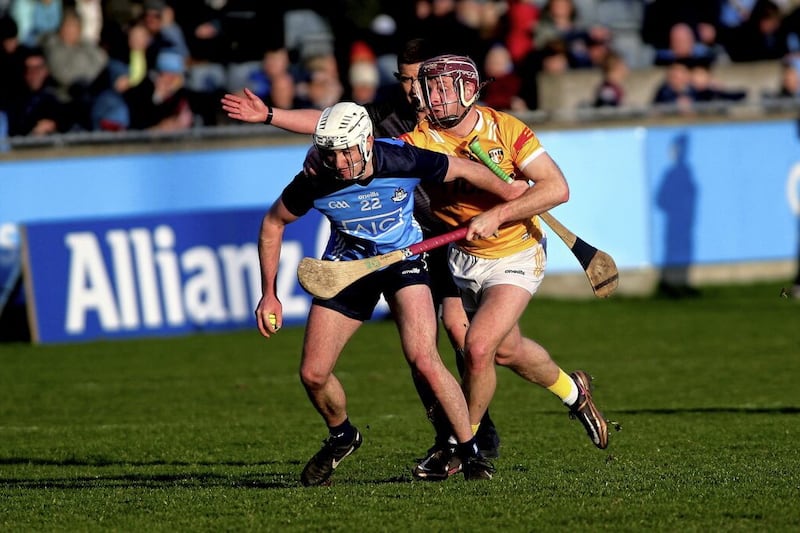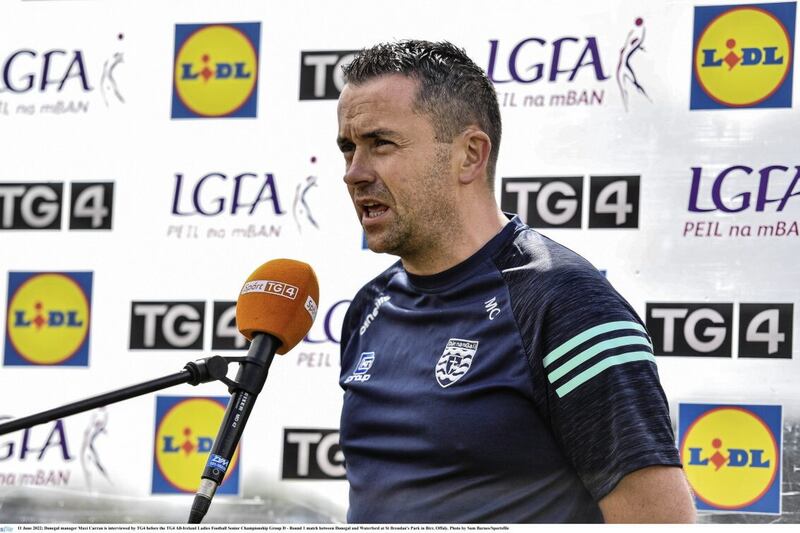DID you hear the one about the two nuns from Waterford?
Aged 94 and 100, they live in a convent in Belfast.
A few weeks ago, Waterford were playing Tipperary in the All-Ireland quarter-final. The 94-year-old was watching TV when the match came on and decided she’d better go and remind the 100 year-old, whose great-nephew Jack Prendergast was playing at centre half-forward for the Deise, that it was starting.
Up she got and, using her walking aid, made her way out of the TV room and up the corridor towards the 100-year-old’s bedroom.
She was about halfway up the corridor when her fellow Waterford native emerged from her room, also using her walking aid.
The two nuns edged closer to each other and met in the middle of the corridor. The 94-year-old explained: “I was coming up to tell you that Waterford are on the television.”
The 100-year-old, who is hard of hearing, replied: “Sorry I can’t stop, Waterford are on the television!”
She made her way on down the corridor and got a good seat near the telly. The 94-year-old soon joined her and together they cheered their heroes on to victory and you can be sure they were watching last Sunday when the Deise bowed out against Limerick.
That's a true story.
Those two nuns have been living outside their county boundaries for many years but the pull of the blue and white jersey remains as strong as ever.
It’s remarkable, especially when you consider that their opportunities to play Gaelic Games in their younger years must have been very limited. They’ve lived to see many changes so it must delight them to see how many girls are now playing and excelling in sport in general and Gaelic Games in particular.
Last weekend the nation cheered boxer Kellie Harrington to gold at the Tokyo Olympics while the likes of Caroline O’Hanlon, who somehow manages to combine hardly missing a game for her club, her county or Manchester Thunder with a busy working life as a doctor, is one of the many role models in women’s sport.
The first All-Ireland Ladies’ Football final was played in 1974 and between then and now the LGFA has become a crucial cornerstone of many clubs.
There was one girl in our underage team when I was growing up and I can remember a bemused member from an opposition asking one of our players: “What does she do?”
“She catches it and kicks it,” he answered. And that is exactly what she did.
The underage team my son plays on these days includes an all-girl full-back line capable of putting the fear of God into any young forward and they do much more than catch and kick.
Nowadays pitches up and down the country are packed with girls giving as good as they get. Like many boys, they come to their first training session barely able to kick the ball and hiding when it comes near them.
But they gain confidence and take off and before long they’re channelling competitive instincts they probably didn’t even know they had by emptying some poor young fella over the sideline.
The scene after last year’s Dublin versus Armagh All-Ireland Ladies’ Football semi-final was among the highlights of 2020 for me.
I was disappointed for Armagh but as they trudged out of Breffni Park towards the carpark the Dublin dressingroom was going bananas. Christmas hits were blasting out and the girls were dancing on the benches giving it loads.
“All I waaaaaaant for Christmas is you-hooooooooo…. Yeah, yeah, yeah…”
It was the sheer craic that I enjoyed, the joie de vivre, everybody in it together savouring the moment. Men’s football has lost a bit of that.
So you can understand why Monaghan player Kerrie-Anne Walsh was so annoyed that the LGFA decided to abandon the All-Ireland at underage level this year for a second season in-a-row. Provincial championships were played at U14, U16 and minor level but – in a measure to curb the spread of Coronavirus - the LGFA decided that the winners of those championships would not go forward to an All-Ireland championship.
The equivalent male competitions are all running as normal so it’s no surprise that Kerrie-Anne and her Farney team-mates, whose season came to a premature end when they beat Tyrone in the Ulster ‘platinum’ final at the end of July, are feeling hard done by.
As a consequence, 15-year-old Kerrie-Anne has launched a petition on Change.org which has generated over 5000 signatures calling for the All-Ireland series to be reinstated.
“If the Munster minor boys can play the Ulster minor boys in an All-Ireland final two weeks’ from now, sharing one football between 30 and marking one another tightly, there is no reason the girls cannot do the same,” she wrote.
“Covid-19 sees no gender, there is no reason why the LGFA should.”
Kerrie-Anne argues that there is little difference between Monaghan playing Donegal in Ulster (a 110km trip) to them playing, for example, Kildare of Leinster which is a 120km trip.
It should be noted of course that the LGFA have no jurisdiction on the male championship and they did what they felt was appropriate to ensure the safety of their players. Given what has occurred in the Tyrone senior camp over the last fortnight, you can understand their decision but the crux of Kerrie-Anne’s protest is frustration at the glaring lack of consistency here. A brother is allowed to play but his sister is not? So is the male competition more important? More joined-up thinking and leadership is required.
Highlighting the very real issue of drop-out in girls’ sport, Kerrie-Anne makes a very convincing argument.
“Our U16 and minor ladies teams are not ready to end our football year yet,” she added.
“The effort and work that goes into trials, training and matches with a county team, especially at U16 and minor age groups which have the highest drop-out rate, is exceptional.
“So I ask, as a young female, as a proud member of the LGFA, as a determined player of Gaelic Football, please reconsider your decision.
“Please do not leave an All-Ireland cup sitting idle when it is just waiting to be lifted by a team of hardworking, committed young footballers.”
I think those two nuns from Waterford might agree with her.

